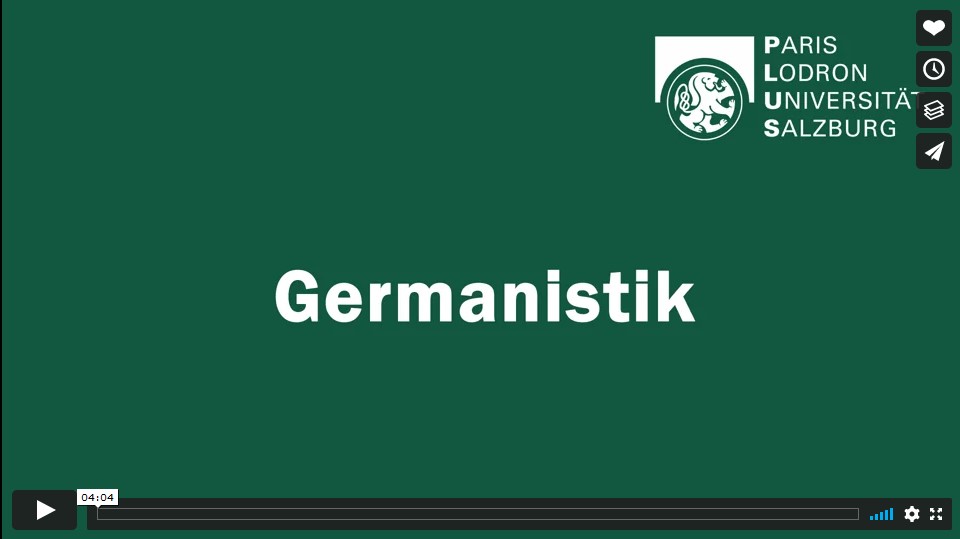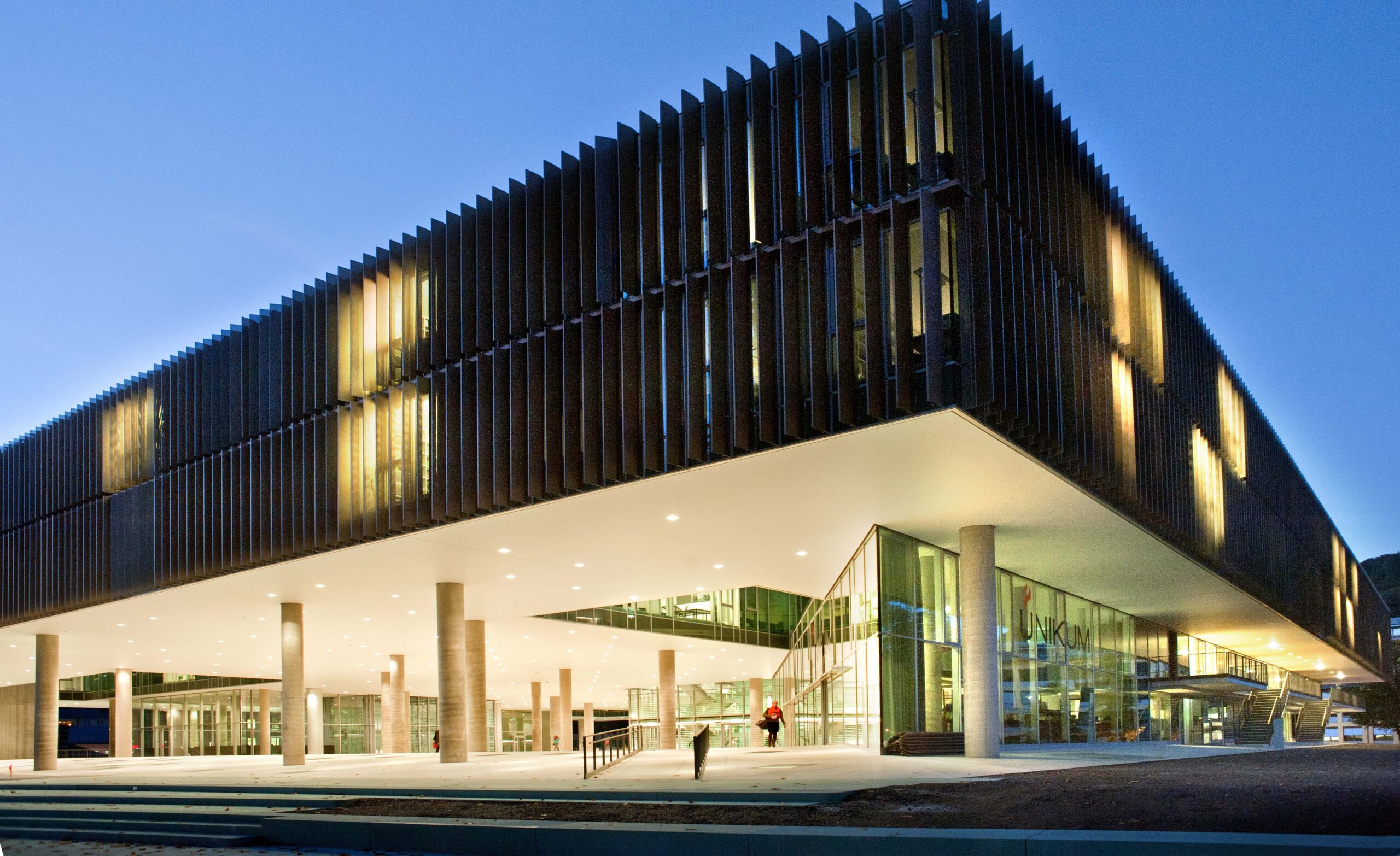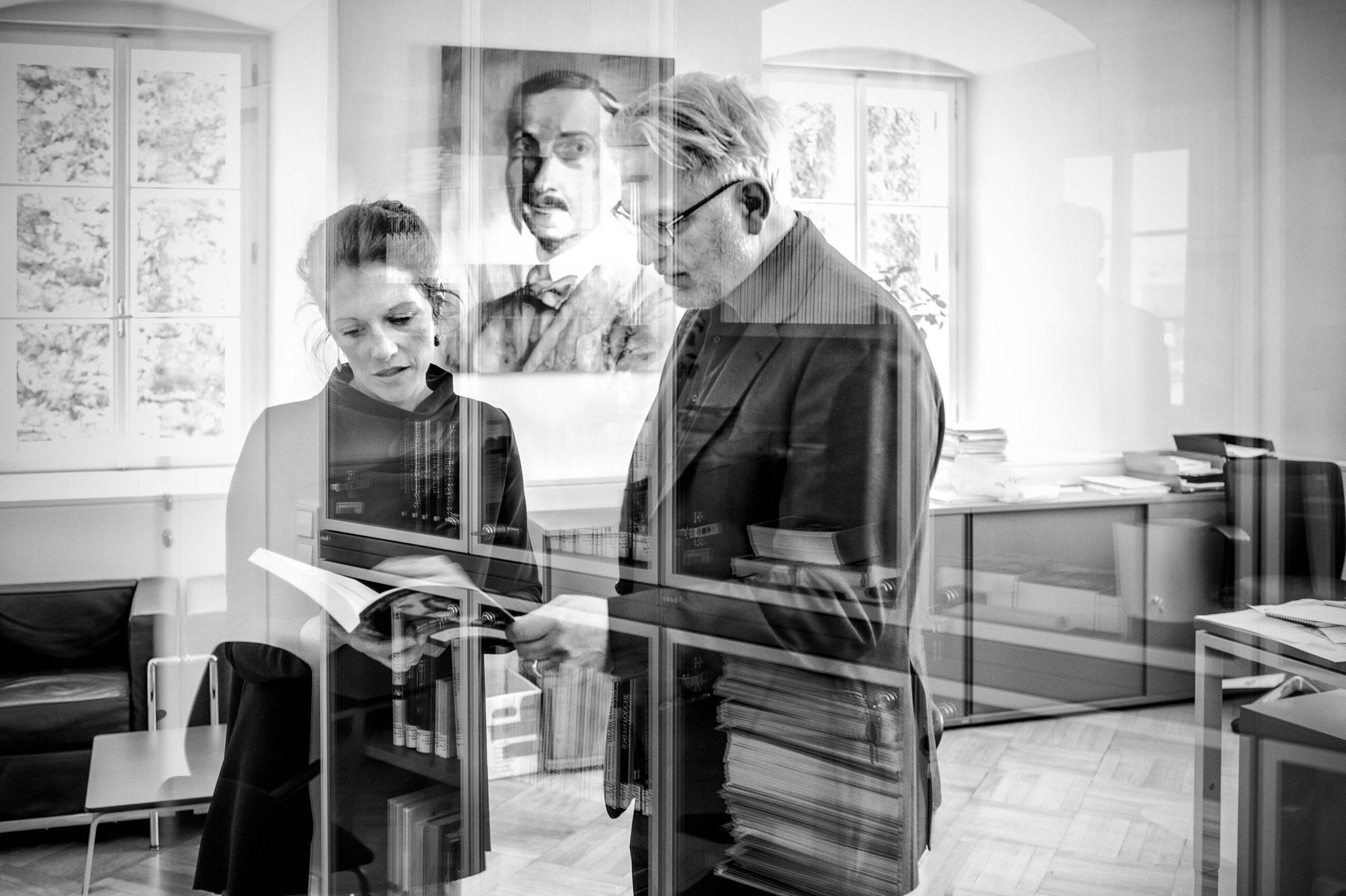GERMAN STUDIES BA
| Schedule appointment for personal enrolment To register for your studies, you must enter your personal data online. Enter your data and select an appointment. Please click here for more information. |  presentation video |
| Course Duration / ECTS | 6 semesters / 180 ECTS |
| University degree | Bachelor of Arts (BA) |
| Admission Requirements and Curriculum | · Matura or school leaving certificate (e.g., Abitur (GER), GCE levels (UK), Diplome du Baccalaureat de l’Enseignement du Second Degre (F), Titulo de Bachiller (E), Attestat (RSF)), which is comparable in length and quality to the Austrian Matura. · Additional exam: Latin proficiency -to be completed before the final Bachelor’s examinations · Curriculum |
| Dates and Deadlines | · The dates and deadlines change every semester. · The current deadlines and dates can be found here. |
| Information on the department and departmental student representatives | Department of German Studies stvwxhc-A3.gehc-A3TtrmanisemMwxhctik@oeemMwxhch-salkIz2i0Lzbu@emMwxhrg.rXOvJdCatxhc-A3T |
| Language level required | German C1 |
Are you already a student at the PLUS and want to take up this study program as well – or switch?
Here you will find the services for PLUS students.
If you still need help or advice after enrolling (registering for a study program), you will find important links here.

What will I learn?
Students will be able to reflect academically on the German language in its cultural, communicative, medial, and literary-artistic means of expression. In literary studies and linguistics, this involves the knowledge of historic and present processes of language as a system or cultural means of expression. It also includes an understanding of the intercultural, interlingual, and intermedial relationships distinguishing language and literature in history and present. Students will analyse texts using methods from linguistics and literary studies and gain an insight into the subject areas of the theory, systemics and history of language, and the various aesthetic appearances and functions of literature in their cultural, medial, culture- and literary-historical context.

What makes Salzburg so special as a place to study?
The department of German Studies at the University of Salzburg offers students a relatively small department, teaching that is based on academic criteria, an internationally networked faculty enjoying an excellent reputation, as well as a very good student-to-staff ratio. Besides topics and research paradigms of international relevance in the fields of linguistics and literary studies, research and teaching focuses lie in the area of Austrian Literature and the role of the German language in Austria. The department of German Studies is very well networked both nationally and internationally, which allows students to study abroad (this includes German-speaking countries). It is also possible for students to contribute to the department’s research and teaching activities through teaching assistances, tutorials, project work, etc.

Which career opportunities do I have?
The BA course in German Studies at the University of Salzburg offers students a profound education in the arts and humanities. Graduates are qualified to work in the fields of culture management, publishing, and dramaturgy. Further possible occupations for graduates include PR, media and library work, communication trainings, technical editing, but also in various other fields of economy. A specialization in "German as a Second or Foreign Language" qualifies graduates for teaching German and German culture to non-native speakers at institutions at home and abroad. Moreover, it allows students to apply for a ‘Sprachassistenz’ at international schools and universities.
Postgraduate degree:
German Studies
Literary and Cultural Studies with a specialization in German Studies
German Language Sciences
Contact

Univ.-Doz. Dr. Irmtraud Kaiser
Head of the curriculum committee German Studies
Erzabt-Klotz-Straße 1, 5020 Salzburg
Tel.: +43 662 8044-4360
E-Mail: irmtraD87UTud.kaiseGO36cr@plusyEigP.acTf5qL.atEigPv
Photographs: © Luigi Caputo (1-3)




